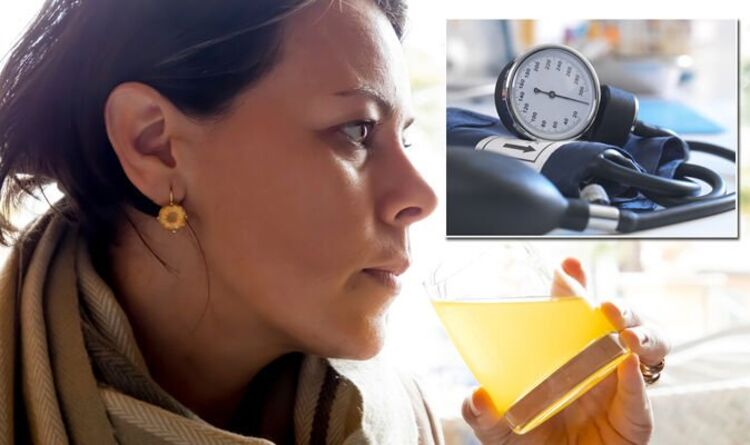Chris Evans reveals his wife gave him a blood pressure monitor
We use your sign-up to provide content in ways you’ve consented to and to improve our understanding of you. This may include adverts from us and 3rd parties based on our understanding. You can unsubscribe at any time. More info
Citrus fruits, such as oranges, grapefruits and lemons are full of vitamins, compounds and minerals that have multiple health benefits, including lowering blood pressure. A study conducted in 2014 on 101 Japanese women found that daily consumption of lemon juice was associated with a reduction in blood pressure. The researchers attributed this change to the citric acid and flavonoids present in the lemons. Furthermore, lemon juice was found to be most effective when combined with exercise with researchers concluding “it was surmised that the number of steps and lemon ingestion are related to blood pressure improvement by different action mechanisms”.
While lemon juice was found to be effective, it wasn’t the only citrus fruit that research showed could help to lower blood pressure.
So too could orange and grapefruit juice, however this came with one caveat in that grapefruit juice was found to interfere with blood pressure medication.
Although citrus juices could be effective at reducing blood pressure, other lifestyle changes can also effectively reduce blood pressure.
A healthy lifestyle is not just one of the best ways to reduce high blood pressure, it is one of the most effective methods to prevent it from rising.

The NHS recommends a number of changes including cutting salt intake, eating a low-fat diet, losing weight, drinking less caffeine, and quitting smoking.
With regard to salt intake the national health provider advises that individuals cut their salt intake “to less than 6g a day, which is about a teaspoonful”.
Furthermore, cutting alcohol consumption to less than 14 units a week is also an effective way to keep blood pressure at healthy levels.
This is due to the fact that alcohol is high in calories which can cause an individual to gain weight and increase their blood pressure.
Should lifestyle changes not be effective at reducing or maintaining low blood pressure, medications can be prescribed in order to assist.
These include ACE inhibitors and angiotensin-2 receptor blockers, medications that are normally prescribed to those aged 55 and under.
Blood pressure medication often needs to be taken for the rest of the patient’s life.
However, the dosage of the medication can be reduced or stopped completely if blood pressure remains controlled.

High blood pressure can have a number of causes, some in and some out of an individual’s control.
Factors within a person’s control include their weight, their diet, how inactive they are, and whether they drink too much coffee or alcohol.
Risk factors that can increase a person’s risk of high blood pressure also include those which are out of their control such as their age, whether they have a relative with high blood pressure and ethnicity.
Research has shown people of black African or black Caribbean descent are more likely to experience high blood pressure.

Often high blood pressure can be caused by other conditions present in the body with around one in 20 occurring as a result of an underlying health condition or the consumption of medicine.
Conditions that can cause high blood pressure include kidney disease, diabetes, long-term kidney infections, hormone related problems such as an underactive thyroid, lupus, and scleroderma, a condition that causes the skin to thicken.
Medications such as steroids and the contraceptive pill can cause an increase in blood pressure.
For more information on high blood pressure contact the NHS or consult with your GP.
Source: Read Full Article
